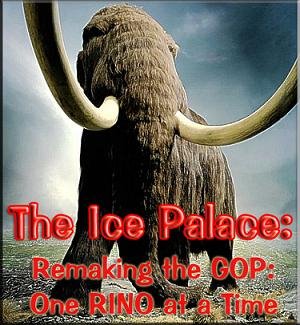Of Humans and Clams
One of the few exceptions was Jeremy Bentham, the philosopher who 200 years ago also advocated for women’s rights, gay rights and prison reform. He responded to Kant’s lack of interest in animals by saying: “The question is not, Can they reason? nor, Can they talk? but, Can they suffer?”Interesting line of questioning, especially the italicized phrase.
Fast forward to a modern, "enlightened" animal rights whacko, also mentioned in the Kristoff piece:
Yet the movement is also the product of a deep intellectual ferment pioneered by the Princeton scholar Peter Singer.Kristoff goes on to further describe the encounter he had with Singer:Professor Singer wrote a landmark article in 1973 for The New York Review of Books and later expanded it into a 1975 book, “Animal Liberation.” That book helped yank academic philosophy back from a dreary foray into linguistics and pushed it to confront such fascinating questions of applied ethics as: What are our moral obligations to pigs?
John Maynard Keynes wrote that ideas, “both when they are right and when they are wrong, are more powerful than is commonly understood. Indeed the world is ruled by little else.” This idea popularized by Professor Singer — that we have ethical obligations that transcend our species — is one whose time appears to have come.
“There’s some growth in numbers of vegetarians, but the bigger thing is a broad acceptance of the idea that animals count,” Mr. Singer reflected the other day.
I eagerly pushed Mr. Singer to find his boundaries. “Do you have any compunctions about swatting a cockroach?” I asked him. “Not much,” he replied, citing reasons to doubt that insects are capable of much suffering. Mr. Singer is somewhat unsure about shellfish, although he mostly gives them the benefit of the doubt and tends to avoid eating them.If Mr. Singer, a known leftist, would channel his compassion toward ending suffering for all forms of life, animal and human, I may have respect for what he has to say. But like most leftists with regard to their storeroom of compassion, Mr. Singer's capacity for compassion weighs empty when it comes to human beings:
To the irreligious left who eschew boiling lobster, who protest killing whales, or baby seals, or for that matter Mr. Singer, who eschews eating oysters on the half-shell due to the mere 'possibility' of their suffering, their stores of compassion somehow run precariously dry when newborn or soon-to-be-born human beings enter the equation.An internationally known Princeton "bioethicist" and animal-rights activist says he'd kill disabled babies if it were in the "best interests" of the family, because he sees no distinction in the child's life whether it is born or not, and the world already allows abortion.
The comments come from Peter Singer, a controversial bioethics professor, who responded to a series of questions in the UK Independent this week.
Earlier, WND reported Singer believes the next few decades will see a massive upheaval in the concept of life and rights, with only "a rump of hard-core, know-nothing religious fundamentalists" still protecting life as sacrosanct.
To the rest, it will be a commodity to be re-evaluated regularly for its worth.
Being leftists, they celebrate human death. That's why they worshipped Stalin, Mao, Che Guevara and the North Vietnamese communists, and continue to worship Castro, Chavez and other murderers. That is why they celebrated the banning of DDT, even though they knew it would result in untold human deaths due to malaria and other mosquito-borne diseases.
To the left, human death is cool. Human death is righteous. For human death fits right in to the Marxist bromide, "Everything that exists deserves to be destroyed." In their view, which is reflective of their über prophet, Karl Marx, their phoenix that is their otherwise unattainable socialist utopia must necessarily rise from the ashes of human debris.
To the leftist, death is cleansing; death means rebirth.
Human death, anyway.
In short, leftists, at their very core, operate from a platform of evil.















|